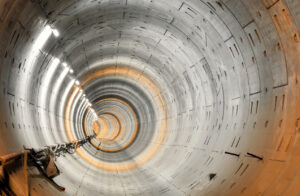Inside the Internet of Things - Bryon Moyer Blog
[From the last episode: We looked at leakage current that happens when transistors aren’t totally off.] We’ve talked before about the simplicity of – on or off – and how that’s something of an oversimplification due to leakage. We also saw the assertion that, with a physical , if there’s […]
Read More[From the last episode: We looked at the quantum phenomenon of tunneling, and saw how it can allow insulators to conduct a little current.] Everything we’ve talked about so far has related to digital circuits, which are either on or off (in theory). That’s what makes CMOS so useful. But […]
Read More[From the last episode: We looked at the contribution that analog circuits make to power.] We’re now going to look at some of the major things that affect how much power circuits can… draw? Use? It’s hard to find an accurate verb here, since, as we saw, circuits don’t “draw” […]
Read More[From the last episode: We saw that voltage has a strong impact on power.] If voltage is a major influence on power, then, if you’re trying to reduce power, wouldn’t it make sense simply to lower the voltage as much as possible? The answer is… kinda. Maybe. It’s… complicated. But […]
Read More[From the last episode: We saw that reducing voltages to near or below the threshold voltage can help to lower power.] In theory, we can use leakage current as a way of helping us do logic, telling 1s from 0s. We know that because we saw last week that, as […]
Read More



